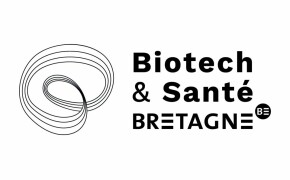Brest is the second largest city in Brittany with a population of 400,000. Its innovative Capucins eco-district, is built around sustainable urban practices.
Historically, the Capuchin plateau was home to industrial and military activities, however, these have been moved to other areas in recent decades. Urban sustainability is one of the key components of the Capucins renewal project. The geographical location of the site allows for a completely unobstructed view of the Penfeld river, the harbour and the city of Brest. As the area is steeped in history, the aim is to make the district as dynamic as it was previously by offering a quality of life based on culture and social offerings. Further, the project aims to integrate the eco district on the right bank of Brest and to renew the attractiveness of this part of the city by creating new cultural facilities and innovative services for citizens.
The eco-district has a diversified housing offer which provides a social mix representation: 50% of the housing stock is available through free ownership, 25% are subsidised rental units and the remaining 25% are available at an affordable cost. Each block has an underground car park.
The Capucins project is designed as a sustainable neighbourhood with public spaces mainly allocated for pedestrians and limiting the space for motor vehicles. The public transport network - bus, tram or cable car - makes the city extremely accessible to residents.
The eco-district represents a true European corridor as, by car, people can access the airport in 20 minutes and travel by expressway to the city of Rennes in 2.5 hours.
Resources needed
The contracting authority of the Capucins eco-district is Brest Métropole. In 2009, the French State and Brest Métropole signed a session protocol, enabling the Métropole to launch the urban renewal programme, the cost of which was set at 2.2 million euros.
Evidence of success
In the context of the large urban renewal operation for The Capucins eco-district, the EURE Interreg Europe project focused on two pilot projects which have been developed between 2015 and 2019, the Brest Smart Grid project and a Photovoltaic Power plant project. In 2019, EURE project analysed 4 sustainable consumption indicators in the Capucins site.
Difficulties encountered
The challenges facing the Capuchins are mostly the rehabilitation of a historic site, bringing innovations in housing, economy, culture and leisure, and easy access to all shops and services. However, Brest has been financially investing in ideas so that the metropolitan area can truly change.
Potential for learning or transfer
The Capucins has carved out a unique place for itself in the Brest landscape. Many activities and festivities take place: public picnics, fashion week, comic book meetings, BMX competitions, dance festivals and sports forums and new projects are continuously launched. It is becoming a popular place for tourists.
Tags: Climate change, Cultural heritage, Economic development, Energy efficiency, Governance, Housing, Land use, Planning, Public transport, Social housing, Sustainable mobility, Tourism, Urban development, Urban mobility








